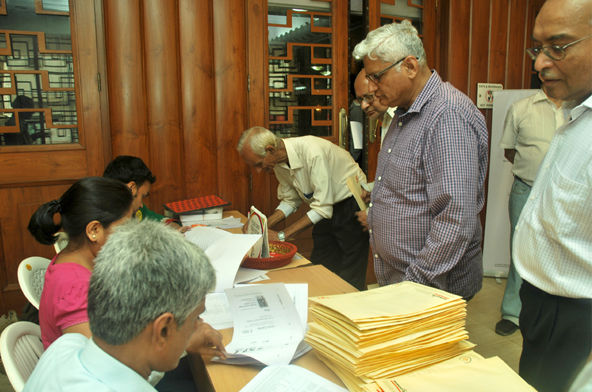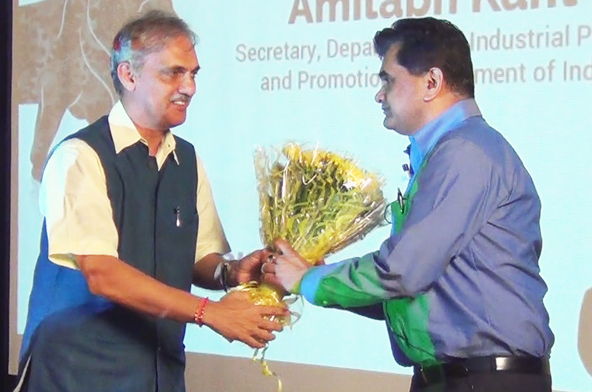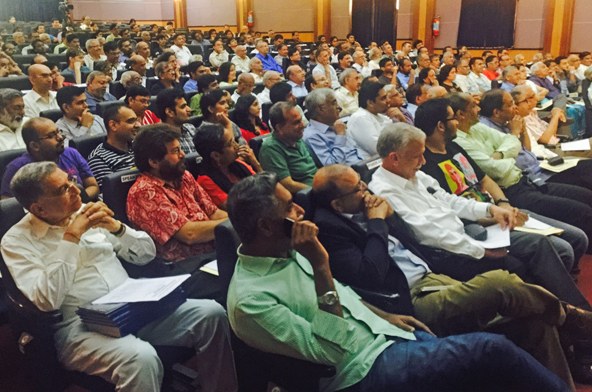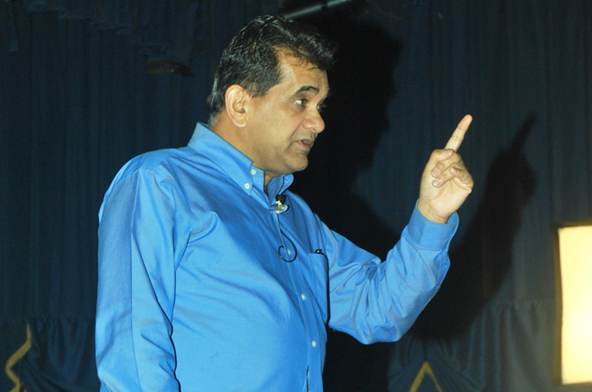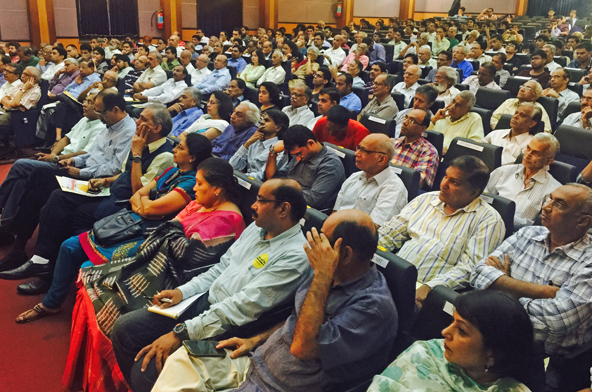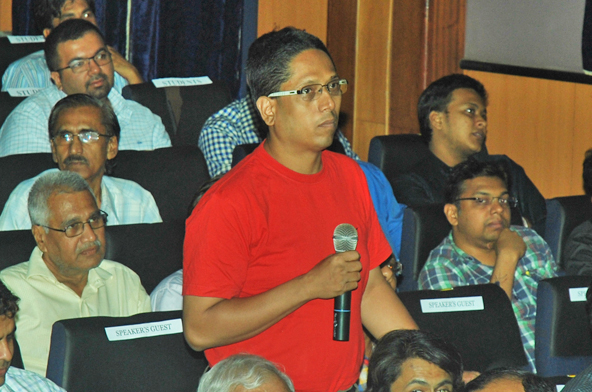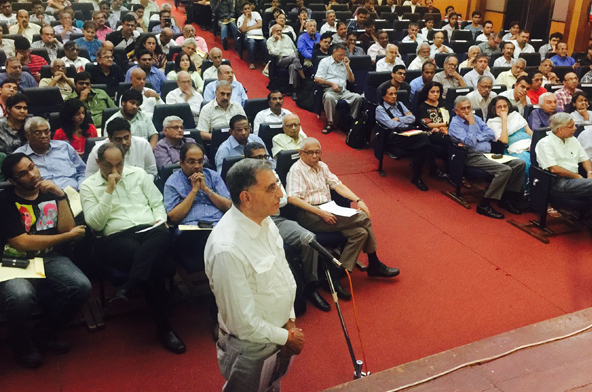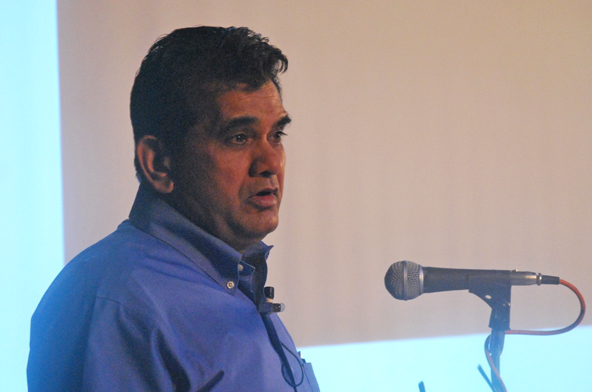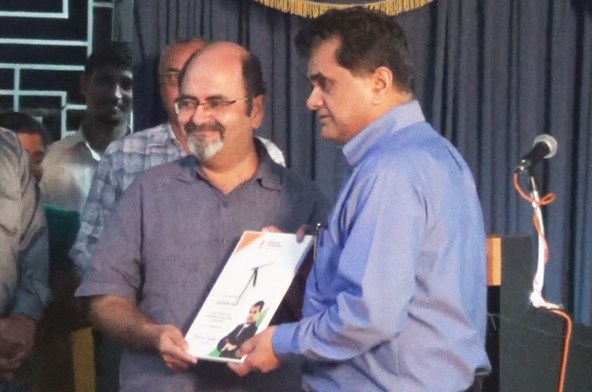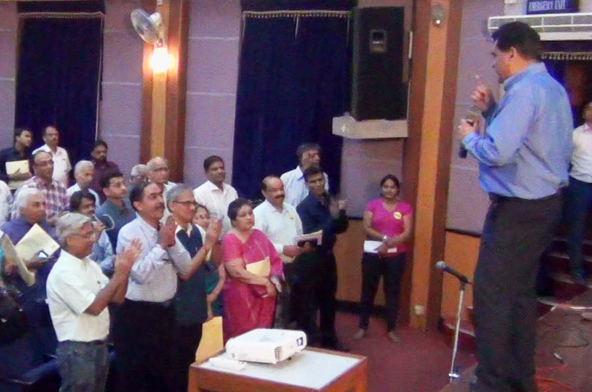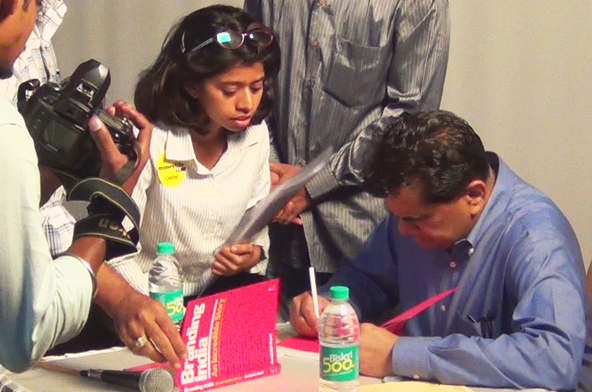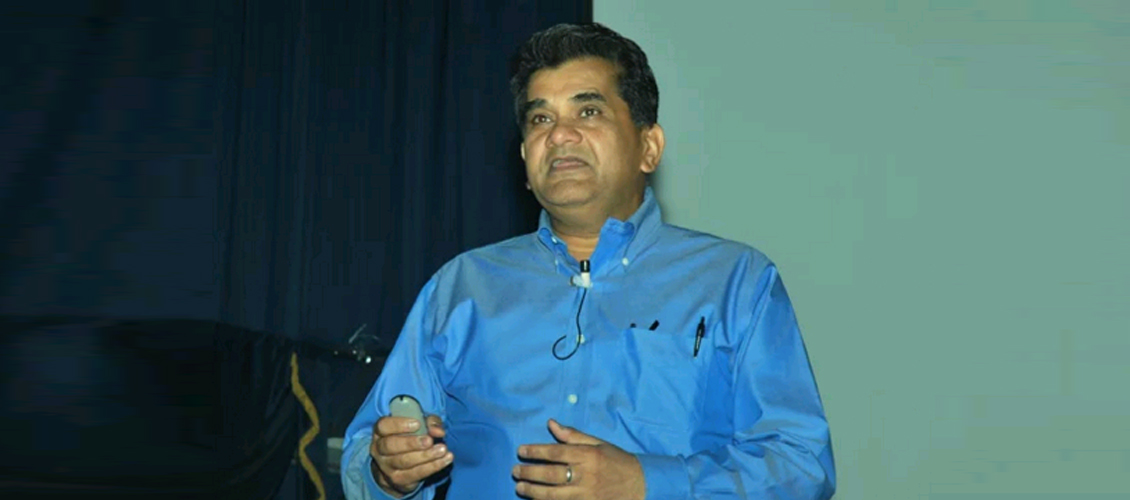
The ‘Make in India’ project is extremely inclusive because the effort to improve ease of doing business, enabling manufacturing through industrial corridors, infrastructure development and smart cities is aimed at improving lives of 1.25 billion citizens and everyone can play a defining role in this effort, says Amitabh Kant, Secretary, Department of Industrial Policy and Promotion (DIPP) – Government of India. He was speaking at an interactive session organised by Moneylife Foundation in Mumbai.
Mr Kant, who is in-charge of the ‘Make in India’ initiative, and the man behind successful marketing campaigns, like ‘God’s Own Country’, ‘Incredible India’, and ‘Atithi Devo Bhavah’, said, “Role of the common man is critical to make the efforts a success. This is because branding is not just related with marketing but delivery on the ground. In order to create a good product on ground, the role of common man is important.”
“The government has laid immense emphasis and focus on making India an extremely easy place to do business. We are planning to increase the number of services on the e-Biz platform to 26 from the present 14, by the end of this year. Over the period of time, we will integrate all the state and central government services so that there is one paper and one point of payment to make India an easy and simple place to do business.”
Mr Kant admitted that the present scenario of doing business in India was extremely unfriendly. He said “India can grow as a manufacturing nation only if we are able to dismantle the myriad of approval systems. It requires a mindset change. And this is a huge challenge”.
He said India must use technology to leapfrog by converging and integrating services. He also said human interface should all together be done away with and replaced by technology, to weed out corruption embedded in the system. “Everything should be online, there should be no paper work” he added.
The DIPP Secretary also informed that the Ministry of Commerce & Industry would soon release a list of states ranked on the basis of ease of doing business. “We are trying to build a spirit of competition on ease of doing business among the states. This is a positive sign. Investors as well as public must know which are the best and worst performing states. We will release a list by next week” he said
India is embarking on a strategy of infrastructure driven growth. One of the major challenge for India over next few decades is how fast and meaningful we can make the urbanization process, he said.
Mr Kant said, “We will be doing more construction in the next four decades than what we have done in the last 400 years. And thus the challenge for India is to do a very innovative and a very sustainable model of urbanization. I think how do we recycle our water, how do we do public transportation, how do we manage our waste- are huge challenges for India.”
According to a McKinsey study, by 2050 India will have 700 million additional Indians getting into the process of urbanization. “By 2030 we will see 350 million Indians getting into the process of urbanization. Therefore challenge is that India has to create two and a half Americas by 2050,” Mr Kant added.
“Our existing cities cannot absorb this kind of mass migration and therefore we need to build new cities and create modern infrastructure for serve citizens,” Mr Kant said, adding, “we need to build cities that are far more innovative and sustainable. Since we do not have abundant supplies of land, energy and water, these new cities have to be compact, dense, vertical, and built on the back of an extensive mass transit system.”
Talking about boosting manufacturing in India, Mr Kant emphasised on the need to improve exports as well. “We cannot just produce for domestic consumption. India can become a manufacturing hub only when the exports will increase and it must grow rapidly. India’s share in global trade is very low and it is time for us to penetrate markets overseas with greater vigour and energy,” he said.
Prime Minister Narendra Modi launched the ‘Make in India’ campaign last year to promote domestic production with the aim of increasing the share of manufacturing to 25% of GDP by 2022 from 16% at present.
Mr Kant said branding was not merely about advertising, but about good product delivery. “Brand-building is all about delivery – the convergence of good advertising, good product and good delivery,” he said. He added that public branding presented greater challenges than corporate brand building.
“Make in India campaign was all about making India a global player in manufacturing, liberalizing FDI regime, making India an innovation hub and making it a part of the global supply chai,” he added.
The major objective behind “Make in India” is to focus on 25 sectors of the economy for job creation and skill enhancement. The initiative hopes to increase GDP growth and revenues. Make in India also aims at high quality standards and minimising the impact on the environment. The initiative hopes to attract capital and technological investment in India.
According to official reports, during September 2014 and August 2015, the Indian Government has received proposals worth Rs1.10 lakh crore ($17 billion) from companies interested in manufacturing electronics in India. In addition, about 24.8% of smartphones shipped in the country in the April-June quarter of 2015 were made in India, up from 19.9% the previous quarter.


